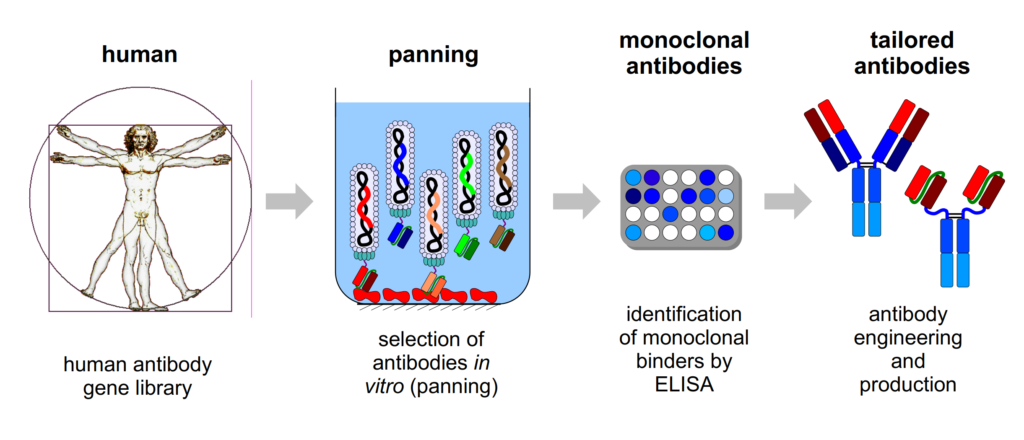Prof. Dr. Michael Hust, Kristian Roth
Technische Universität Braunschweig, Institut für Biochemie, Biotechnologie und Bioinformatik
Antibodies are used in the diagnostic of allergies, e.g. in the RAST-test do analyze blood sample of people with allergies, but also for the detection of allergens in food samples. In this third project part, antibodies will be generated for the detection of allergens by gene technology approaches. The used technology is antibody phage display and does not require the immunization of animals. This technology was also honored with the nobel prize for chemistry in 2018. These recombinant antibodies are needed for the diagnostic of mustard and peanut allergens. Using these antibodies, a test of the plants with reduced allergen content is possible to proof the removal of the allergens. In addition, the detection of the allergens in conventional plants and food is possible.
The antibodies will be generated in vitro. Here, phage particles (viruses, which infects certain bacteria) are used. These phage particles have an antibody fragment displayed on the surface and the corresponding gene fragment is packaged in the phage. A library of these phage particles with about 10 billion different antibodies will be incubated with the allergens. All antibody phage particles which are not binding to the allergens will be washed away. This procedure is called “panning”. The specific antibodies binding allergens can be identified using a specific binding assay called ELISA. Using this method, also the blueprint (antibody gene) is available and can be used to produce all kind of antibody formats (antibody engineering). These antibodies will be produced in the lab in cell culture for the diagnostic assays.
